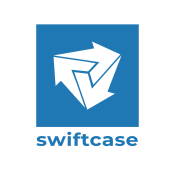Updated 08/09/2021
When all your employees are at the same geographic location it can be difficult to keep everybody on the same page without a system in place. When your team is spread out across the country, or even globally, this becomes a hundred times harder. Unless you want a million phone calls a day, asking you what happens next, then you need to get organised.
The key to a consistent service is a clearly defined business process, or in other words, having the step by step actions required for your offer clearly laid out. Putting this information into an online software platform allows your remote workers to access these details wherever they are based. Your remote workers then have the same information to hand as the staff based in your head office.
